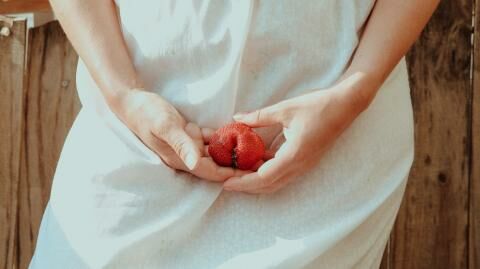If you know who Gwyneth Paltrow, founder of Goop, is, you've probably heard of vaginal steaming. While the actress seems to have been won over by the benefits of this practice, doctors and gynaecologists are less enthusiastic and are even concerned. Here's everything you need to know about vaginal steaming.
Discover our latest podcast
What is vaginal steaming?
Vaginal steaming, also known as V-steam or Yoni steam, consists of sitting over a bowl of water infused with medicinal herbs (a bit like an inhalation to unblock the sinuses, but for the vagina). The steam then penetrates the vagina to provide many benefits such as:
- Balancing hormones
- Releasing energy
- Improving fertility
- Reducing period pain
- Alleviating vaginal dryness
Vaginal steaming is not recommended in the following situations:
- Before or during pregnancy
- During menstruation
- If you have an IUD
- In case of an infection or wound
- After a caesarean section
This practice is not new. It is an ancestral method that can be found in Asia and Africa.
A practice that does not have unanimous approval
While many celebrities and influencers advocate this practice on social networks, it is not unanimously supported by the medical profession. Canadian gynaecologist Jennifer Gunter says that vaginal steaming cannot provide all the benefits for which it is known:
Anything sprayed into the vagina or onto the vulva cannot balance reproductive hormones, regulate your menstrual cycle, treat depression, or cure infertility. Even spraying estrogen wouldn't change this!
There is no scientific evidence to support the merits of vaginal steaming, but is it dangerous?
Jennifer Gunter says that the steam can have a placebo effect and be relaxing, but that it can burn the skin if it is too hot. You also have to be careful with products that are infused with anything. However, using soap or essential oils is more dangerous than vaginal steaming. The use of douching or sanitary products can disturb the balance of the vaginal flora. The vagina cleans itself naturally, so it can be dangerous to insert products or any other substance (even natural ones).
In short, this practice is neither dangerous nor miraculous. If you want to try it, first ask your gynaecologist for advice.















